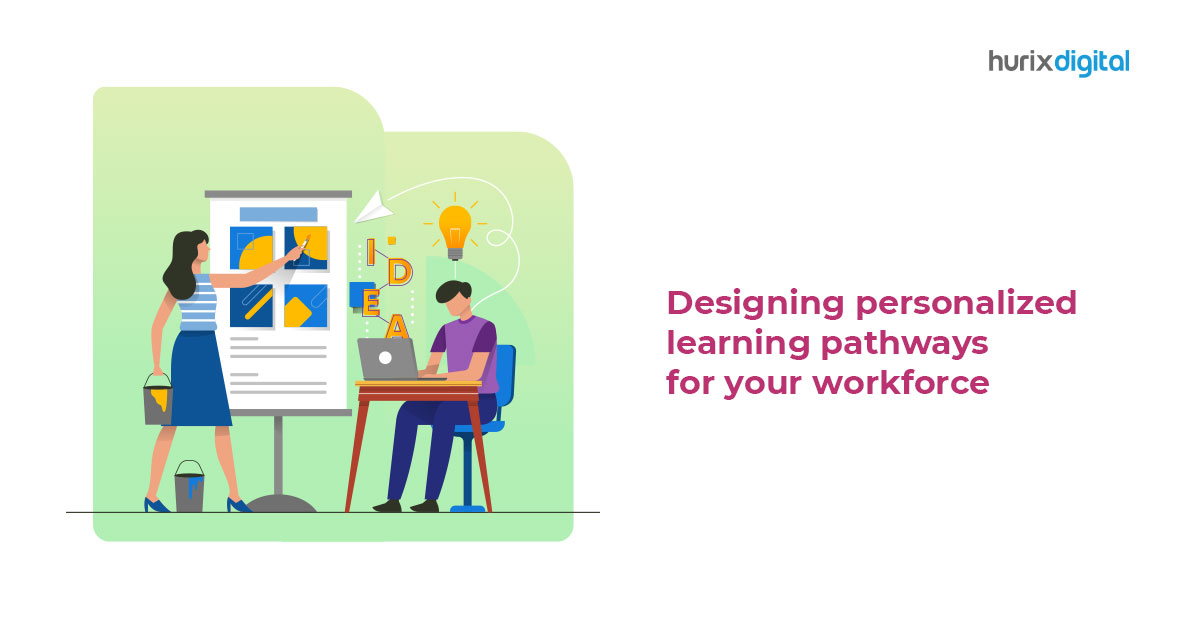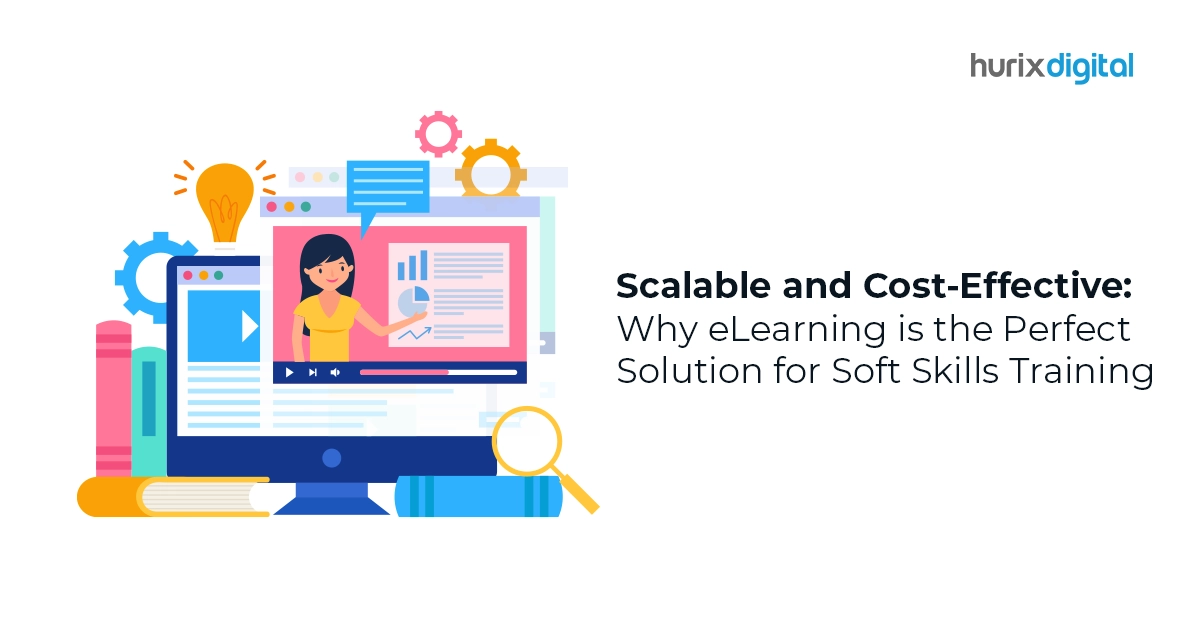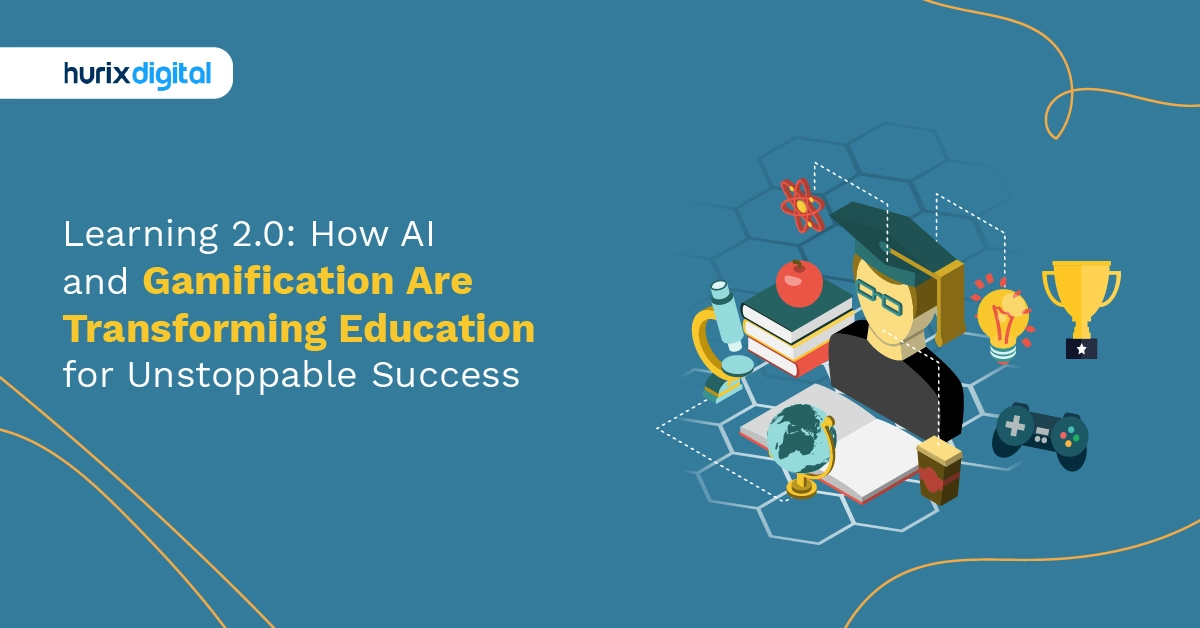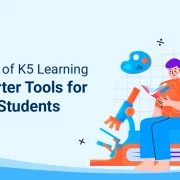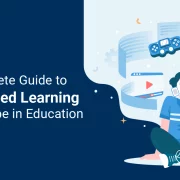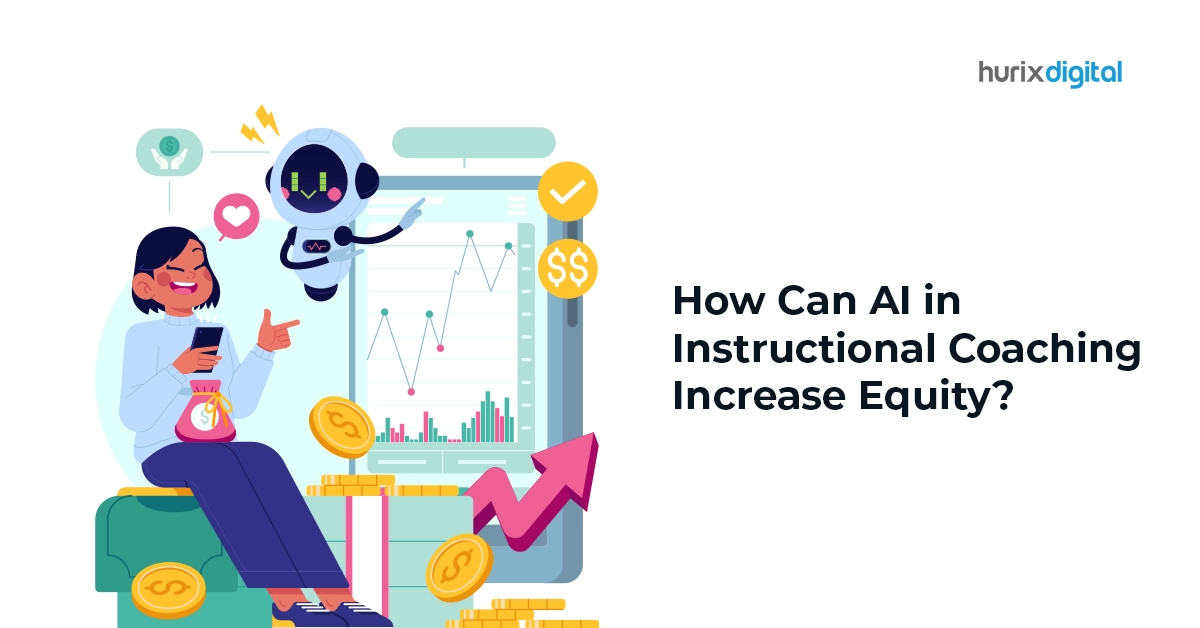
How Can AI in Instructional Coaching Increase Equity?
Summary
Explore how AI-driven instructional coaching can promote equity in education. This blog discusses the potential of AI to support diverse learning needs and improve access to quality education.
Instructional coaching is a professional development process that supports educators. It involves a trained instructional coach and teachers in a collaborative setting. It helps teachers improve their teaching practices to make them more student-centered.
Today, Artificial Intelligence is playing a significant role in enhancing instructional coaching. AI in instructional coaching uses Machine Learning to provide personalized and scalable support to educators. It makes this possible by analyzing large amounts of educational data to find improvement areas and recommend ways to help.
Let’s further understand how Artificial Intelligence is reshaping instructional coaching for educators and students and ensuring equity in education.
Table of Contents:
- Why is Equitable Access to Instructional Coaching Necessary?
- How Does AI Increase Equity in Instructional Coaching?
- The Bottom Line – AI in Instructional Coaching Is a Must in Today’s Times
Why is Equitable Access to Instructional Coaching Necessary?
The need for equitable access to instructional coaching can be understood easily by considering the examples of two teachers- Ms X and Mr Y.
Let’s assume that Ms X has been teaching for quite some time now. She is well-versed in the course content but knows there’s always room to grow and learn more. On the other hand, Mr Y has just started his career as a teacher. He’s eager but could use some guidance to excel.
In both cases, instructional coaching can help both teachers become more efficient. With coaching, Ms X can refine her skills and try new teaching methods, while teacher Y gets the extra help he needs to build a strong foundation.
With the above examples, instructional coaching is not a one-time workshop or training session. It’s ongoing support tailored to teachers at all experience levels.
Also Read: From Fiction to Future: AI in STEM Education – Simulating Experiments and Exploring the Unknown
How Does AI Increase Equity in Instructional Coaching?
Many teachers use AI for different purposes. According to a report, the most common uses are researching information (44%), creating lesson plans (38%), summarizing information (38%), and making classroom materials such as tests and assignments (37%).
In addition, AI is also contributing to instructional coaching for educators by offering personalized, scalable, and data-driven coaching to educators. Here’s more on how AI in instructional coaching can contribute to diversity and inclusion in education:
1. By Providing Personalized Support to Educators
AI-powered platforms can offer personalized coaching tailored to each teacher’s specific needs and situation. Through Natural Language Processing, data analysis, and Machine Learning, AI can identify specific areas where educators require support. It can then deliver customized resources, feedback, and strategies to bridge those gaps.
For example, if a teacher needs help teaching math to elementary students, the AI system can focus on providing resources and strategies specifically related to this area. Thus making the coaching experience more effective and relevant for that teacher.
2. By Improving Student Success with Predictive Analytics
AI in education could narrow the gap in achievement between students who are doing well and those who are struggling by many folds. One way AI helps is through predictive analytics. With predictive AI analytics, statistical methods are used to predict future trends based on past information.
For example, in education, things like test scores, grades, attendance records, etc., are analyzed. Subsequently, educators can figure out which students might need extra help and what kind of support could work best for them.
Thus, with AI’s help, educators can support every student and make sure no one falls behind in their learning. As a result, more students can succeed and do well in school, no matter their starting point.
3. By Reducing Bias in Feedback
Researchers from Princeton and Tufts discovered that 77% of educators have biases based on race without realizing it. Additionally, gender biases are present across all levels of education.
Unlike human coaches who may unintentionally introduce biases, AI systems can evaluate teaching practices objectively. Thus, AI, as an educational technology, can then offer constructive feedback based on evidence. This objectivity promotes fairness and consistency in the coaching process.
4. By Supporting Culturally Responsive Practices
According to the Institute of Education Sciences (U.S. Department of Education), culturally responsive instruction helps teachers tackle social obstacles that lead to differences in student performance. When teachers use culturally responsive practices, they consider the diverse backgrounds and experiences of their students to create a more inclusive learning environment.
AI in instructional coaching helps coaches promote culturally responsive teaching practices. It analyzes data and includes culturally relevant content in coaching materials. This helps educators understand the specific requirements of students from different cultural backgrounds. Consequently, promoting diversity and inclusion in instructional coaching.
5. Lastly, By Overcoming Logistical and Accessibility Barriers
Apart from its other benefits, like personalized learning, AI can be used to overcome logistical issues. AI in instructional coaching can help reach more educators, even those in remote or underserved areas.
Online platforms using AI can provide coaching content and support at any time, overcoming problems like distance or limited resources. This means that educators everywhere can access effective coaching to improve their teaching skills and support their students better.
Also Read: 10 Trends in Education Technology That Will Have A Major Impact in 2024
The Bottom Line – AI in Instructional Coaching is a Must in Today’s Times
Using AI in instructional coaching is a must today for many reasons. Firstly, AI can analyze vast amounts of educational data quickly and accurately. It can tell a lot about student performance and teaching practices. This data-driven approach helps form more effective coaching strategies.
Moreover, it makes continuous improvement possible through real-time feedback and adaptive learning. This helps educators stay updated with changing teaching methodologies and student needs.
In short, AI in instructional coaching supports continuous learning for teachers and forms better student support systems.
Transform your classroom with Hurix Digital‘s comprehensive course development services tailored for K12 and higher education. Our expertise in curriculum design, instructional content, and media production can assist teachers in making education more impactful and enjoyable.
Contact us today to learn more about our services!

Senior Vice President
A Business Development professional with >20 years of experience with strong capability to sell new solutions and develop new markets from scratch. New Market Entry Specialist with experience of working in two of the largest emerging markets – China & India. Also covered other key markets in APAC, US, EU & ME. Exceptional experience of conceptualizing, ideating and selling new learning technologies like VR AR, etc. across multiple industry verticals.

